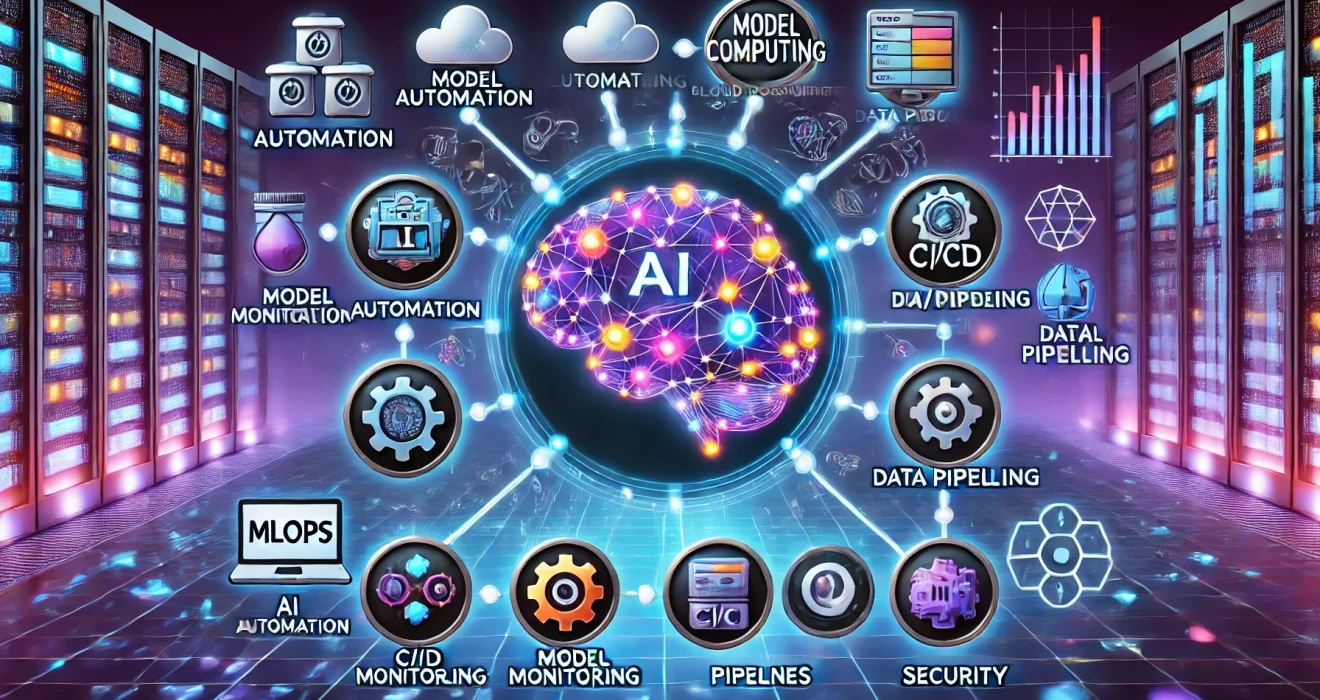What is MLOps – Benefits, Tools and how NeuralChainAI can help with your MLOps
What is MLOps and Why is it Important for Machine Learning Operations?
In today’s fast-paced digital world, businesses are increasingly turning to machine learning (ML) to gain insights from data, improve decision-making, and create more efficient systems. However, implementing machine learning models is a complex, multi-step process that requires careful coordination between various teams, systems, and technologies. This is where MLOps comes in. MLOps, short for Machine Learning Operations, is an emerging discipline that combines machine learning and DevOps practices to streamline and scale the end-to-end ML lifecycle. In this blog, we’ll explore what MLOps is, its benefits, the tools commonly used, and how MLOps consulting companies can help organizations optimize their ML operations.
What is MLOps?
MLOps is a set of practices and tools that bring together the world of machine learning and operations to ensure that ML models are developed, deployed, and maintained efficiently, securely, and at scale. Just as DevOps optimizes software development and IT operations, MLOps focuses on automating and streamlining the process of building, deploying, and monitoring machine learning models.
MLOps extends the principles of CI/CD (Continuous Integration/Continuous Deployment) into the world of ML. It addresses the unique challenges of working with data, models, and algorithms in production environments. While DevOps deals with software and infrastructure, MLOps ensures that machine learning models can be trained, deployed, and maintained continuously without causing disruptions in the business processes.
Benefits of MLOps
- Faster Model Deployment: With MLOps, organizations can automate many stages of the ML lifecycle, leading to faster model deployment. Automated pipelines and workflows make it easier to move models from development to production without manual intervention.
- Improved Collaboration: MLOps fosters collaboration between data scientists, engineers, and business teams. By integrating best practices from both machine learning and software development, MLOps promotes smoother communication and ensures that models meet both technical and business requirements.
- Scalability and Flexibility: MLOps helps organizations scale their machine learning systems more effectively. It provides the infrastructure and tools needed to handle large datasets and deploy models at scale, ensuring consistent performance as data volume and complexity grow.
- Continuous Monitoring and Maintenance: In production, models can degrade over time as data changes or business environments shift. MLOps enables continuous monitoring of model performance and facilitates regular updates to ensure models remain accurate and relevant.
- Reproducibility and Transparency: MLOps emphasizes version control, data tracking, and experiment management. This results in reproducible workflows and models, ensuring that data scientists can easily trace back the steps, parameters, and data versions used to create models.
Tools Used in MLOps
A variety of tools help implement MLOps efficiently. Some of the most commonly used ones include:
- TensorFlow Extended (TFX): A production-ready machine learning platform that provides a set of components for data validation, model validation, and deployment.
- Kubeflow: An open-source Kubernetes-native platform for deploying and managing ML workflows, offering tools for training, serving, and monitoring models.
- MLflow: A platform that provides tools for managing the complete machine learning lifecycle, from experimentation to deployment and monitoring.
- DVC (Data Version Control): A version control system designed specifically for managing machine learning datasets and models.
- Airflow: A platform used to schedule and monitor workflows, particularly for automating data pipelines in machine learning processes.
How an MLOps Consulting Company Can Help Streamline ML Operations
While MLOps brings immense value to organizations, its successful implementation requires deep expertise in both machine learning and DevOps practices. This is where MLOps consulting companies come into play.
- Customized MLOps Solutions: An MLOps consulting company can analyze your existing infrastructure and processes, then recommend and implement a tailored MLOps strategy that suits your organization’s specific needs.
- Expertise in Tool Selection and Integration: MLOps consultants bring knowledge of the best tools for your specific use case and ensure that they integrate seamlessly into your existing systems, whether it’s cloud-based, on-premise, or hybrid.
- Training and Knowledge Transfer: Consultants can provide training for your teams on MLOps best practices, empowering them to manage ML workflows independently in the future.
- Ongoing Support and Optimization: Consultants can also provide ongoing monitoring and optimization of your ML models and operations, ensuring models continue to deliver value and remain up-to-date with the latest advancements.
In conclusion, MLOps is an essential practice for organizations that want to leverage machine learning at scale. It provides numerous benefits, including faster model deployment, improved collaboration, and continuous monitoring. With the right tools and a solid strategy, MLOps can be the key to unlocking the full potential of machine learning in production environments. MLOps consulting companies can help organizations navigate this complex landscape, ensuring they achieve maximum efficiency, scalability, and business value from their ML investments.


